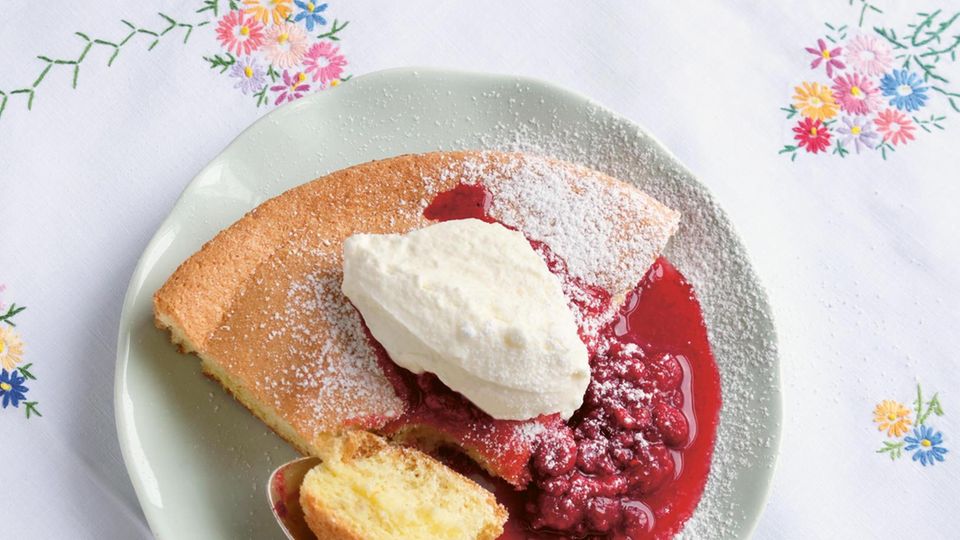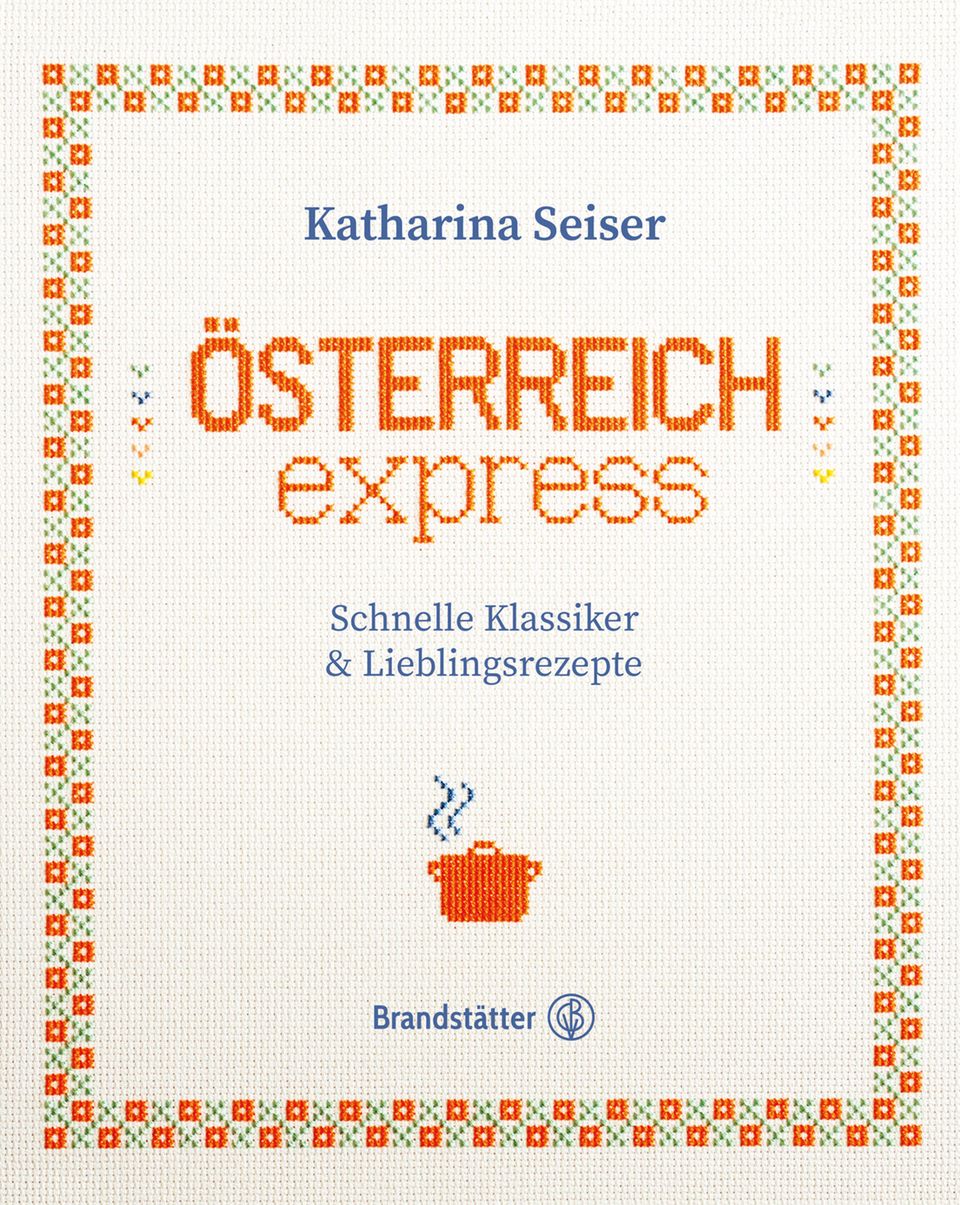Some dishes bring back memories, others hit us straight in the heart like Cupid’s arrow. The star spoke to culinary expert Katharina Seiser about home, culinary traditions and favorite dishes.
Woman Seiser, do you know the famous Madeleine episode by Marcel Proust? The smell of a pastry brings back memories from childhood.
Of course I know them. Both Proust’s painstakingly precisely described search for the source of the feelings that the Madeleine biscuit dipped in tea triggers in him, as well as these moments. We all know them! These are the moments when, out of nowhere, we almost relive a feeling from the past, triggered by a smell or taste memory. This happens to me all the time because I have a kind of dog nose and perceive the world very intensively through it.
Which dish takes you back to your childhood?
When I smell roasted pork with garlic and cumin, I’m in my pajamas with my grandma making marinated pork roast. When I take the first bite of my snow omelet with raspberries, I’m the carefree child again who gets to eat this heavenly pastry all by myself. If I smell bitter orange blossoms, I’m in paradise!
Do we like a dish that we have an emotional connection to better?
I’m afraid this can go in any direction. Emotional does not mean pleasant, the opposite can also be the case. Many people know the chamomile tea effect: they don’t like the idea of the smell. He reminds them of the nausea they felt when tea was served to them as children. I, on the other hand, love the scent of chamomile, not only in tea, but also in sweet dishes, for example. What is certainly true: We taste and feel a dish more intensely if we associate some feeling or memory with it. If we don’t take the time to eat, we won’t figure out what they are.
Some dishes manage to trigger a positive feeling and even increase well-being. What is a comfort food dish for you?
For me, first and foremost, it has to fit me and the moment. In other words: How do I feel, what the weather is like, what do I feel like. These can be consistencies, for me it is often crunchy, flavors or regional cuisines. Often comfort foods are ones that we have known for a long time, but not necessarily. Even a dish we made for the first time can turn out to be a comfort food upon first bite. I made such discoveries while working on my cookbook “Österreich express” – one of them was the “Kaiserschnitzerl with capers and lemons” in a creamy sauce with spiral noodles. The long Austrian history sends greetings.
A classic! How important is preserving culinary traditions to you?
At the same time very and not at all. A lot, because it’s really stupid to discount our culinary heritage. By this I mean everything that we have learned over many generations, from growing the ingredients to optimally processing them into a dish. There’s a lot of cultural history in there. Also what our landscape, our kitchens, and ultimately ourselves look like. As soon as we come to Italy, we are enchanted by the simplest dishes from the tradition of “Cucina povera”, the poor people’s cuisine. In Austria as in Germany, we have a treasure trove of recipes that are only available here – in this form, with this taste, with these ingredients. A little more self-confidence would do us good.
The new cookbook by Katharina Seiser, “Austria Express. Fast classics & favorite recipes” was published by Brandstätter Verlag, 288 pages, 36 euros
What do you mean?
Let’s cultivate this wealth of knowledge and pass it on! Nevertheless, it must always be possible to question it at any time and in all aspects based on the knowledge and mastery of one’s own culinary canon. Otherwise we stand still, or worse, close ourselves off to many exciting new things and glorify old times when everything was certainly not better.
Is this a call to try new things?
There’s nothing I like more than discovering and tasting food and dishes – preferably at markets and in small restaurants. I just spent a few weeks in Japan with my husband, he is an opera singer, and then immediately afterwards in France. It’s amazing and educational to me how different these two food cultures are. Both are considered among the best cuisines in the world. I love finding out which ingredients, spices, techniques and combinations make up a country cuisine. And of course I carefully integrate findings from my travels and research into my cooking.
Tell us which one?
For example, I’ve been making salted lemons for years and use them for much more than just North African dishes. They go great with cabbage rolls. A splash of dry French vermouth or fine soy sauce goes perfectly with Austrian classics. Kimchi goes perfectly with toast with local mountain cheese. Food knows no boundaries, it connects people. That’s the beauty!
And what does home taste like to you?
After a lot of different things: my aunt Herta’s “apple snakes”, my aunt Erna’s Carinthian “Kasnudeln”, my husband’s Kaiserschmarrn, my mom’s stuffed eggs. After savory and sweet pastries, dumplings, pastries, dumplings. After rye bread with butter, potato cheese or Liptauer. Of caraway, chives, peppers and lovage, of bacon, horseradish, anchovies and capers and much, much more.
Who has had the most culinary influence on you?
Lots of people, but mostly those who cooked me honest food, be it grandmas, aunts, mom, mother-in-law or my husband. By “honest food” I mean meals made with fresh, good ingredients without convenience products. But there are also chefs in inns and restaurants who cultivate their classics and master techniques that require many years of practice. And of course authors who, before me, carefully recorded recipes in cookbooks.
This interview contains so-called affiliate links. Further information are available here.




